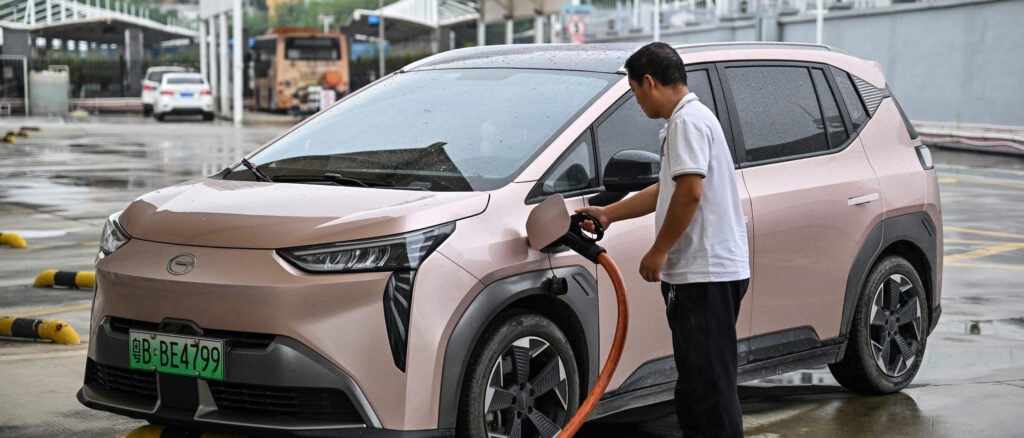U.S. automakers will need to make big changes to their operations if they want to stay competitive with Chinese electric vehicles (EVs) that are flooding the global market, according to an analysis by an auto industry consultant.
US manufacturers are currently Tens of billions AlixPartners predicts that Chinese rivals will hold about a third of the global market share by 2030, but that Europe, South America and Asia will see the biggest growth, driven by electric and plug-in hybrid vehicles. report.
As the auto market evolves in favor of EVs, thanks in part to policy choices by the Biden administration and other Western governments, the consultancy concludes that U.S. companies will need to pivot away from “business as usual” if they don't want to be left behind.
“The global auto industry has been shaped by several inflection points over the past half century, including the emergence of Japanese production techniques in the 1970s, the subsequent rise of South Korea, and more recently the disruption caused by Tesla.” Mark WakefieldGlobal Co-Leader Automotive and Industrial Practice Commenting on the analysis, analysts at AlixPartners said: “China is the new disruptor in the industry, with the ability to create must-have vehicles with faster time to market, lower purchase prices, advanced technology and design, and more efficient manufacturing. [manufacturers]”It will take more than a course correction to catch up with China's strongest brands.” (Related article: 'An existential question': U.S. auto giants on edge as cheap Chinese electric cars intensify competition)
'He's not wrong': Margaret Brennan presses Buttigieg on Trump's stance on electric car purchaseshttps://t.co/CARe2QlxtX
— Daily Caller (@DailyCaller) May 26, 2024
According to the AlixPartners report, specific advantages for Chinese manufacturers include a 35% production cost advantage that gives them flexibility to mitigate the impact of tariffs, faster design cycles, and a focus on providing drivers with advanced technological features that improve the user experience. These advantages cumulatively give Chinese automakers an advantage over their American competitors in an evolving market.
China's largest automaker, BYD, has already begun exploring options to enter the U.S. market through Mexico, and critics of the Biden administration's EV push have consistently expressed concern that the approach could backfire by bolstering Chinese production with capabilities that undercut the industry's biggest players in the U.S. The administration is concerned about the Chinese companies' capabilities and unfair trade practices, and the federal government has impose Or increase tariffs on EVs, EV batteries and other related products in May.
The Biden administration has finalized several tough regulations for light, medium, and heavy-duty vehicles in recent months, including one that requires manufacturers to make 56% of new car sales electric by 2032, with another 13% being plug-in hybrids by the same year. And while the administration is spending billions of dollars to boost EV adoption, production, and infrastructure, major U.S. companies are losing money on their electric vehicle product lines, and consumer demand doesn't seem to be growing as fast as advocates had hoped.
“Automakers that expect to continue operating on business-as-usual principles will not only face harsh reality, but will also become obsolete.” Andrew BergbaumGlobal Co-Leader Automotive and Industrial Practice “The revolution underway in the global auto industry is being driven by the extraordinary maturity of Chinese automakers, who are doing things differently in many ways and in ways that were previously unthinkable,” said Jonathan McClellan, an analyst at AlixPartners.
All content produced by the Daily Caller News Foundation, an independent, nonpartisan news service, is available free of charge to any legitimate news publisher with a large readership. All republished articles must include our logo, reporter byline, and affiliation with the DCNF. If you have any questions about our guidelines or partnering with us, please contact us at licensing@dailycallernewsfoundation.org.







